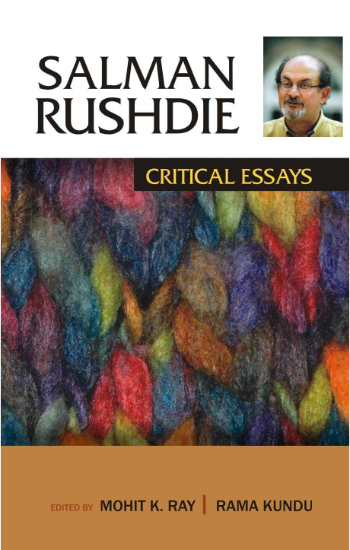Salman Rushdie Critical Essays
Publisher:
| Author:
| Language:
| Format:
Publisher:
Author:
Language:
Format:
₹450 ₹405
Save: 10%
In stock
Ships within:
In stock
| Book Type |
|---|
ISBN:
Page Extent:
Salman Rushdie (1947- ) has emerged over the years as one of the most controversial figures of our times who excites contrary feelings. But whether admired or criticized, the fact remains that Rushdie, with his commitment to struggle for freedom of expression, for speech to the silenced, for power to the disempowered, is a writer who cannot be ignored. One of the major preoccupations of Rushdie’s art is the issue of migrant identity. Many of his characters are migrants drifting from shore to shore in search of some ‘imaginary homeland’, and obviously the author identifies himself with his migrant personae. Search for identity is perhaps the one recurring theme in Rushdie’s works, and the themes of ‘double identity’, ‘divided selves’ and ‘shadow figures’ persist in his writings as correlative for the schismatic/dual identity of the migrant, as well as the necessary confusion and ambiguity of the migrant existence. Rushdie describes the world from this unique point of view of the migrant narrator. He is also conscious of his role in this regard in ‘re-describing’ the world, and thus creating a new vision of art and life. By exercising what he describes as the migrant writer’s privilege–to “choose his parents”–Rushdie has ‘chosen’ his inheritance from a vast repertoire of literary parents, including Cervantes, Kafka, Melville, et al. His novels and stories derive their special flavour from the author’s superb handling of the characteristic postmodern devices like magic realism, palimpsest, ekphrasis, etc. Rushdie has been rightly compared with such literary innovators–stalwarts of our times as Gunter Grass, Milan Kundera, Gabriel Garcia Marquez, et al. Readers of the present volumes will be taken round the world of Rushdie by erudite scholars whose well-researched, perceptive articles will add substantially to their enjoyment of these fantastic ‘imaginary homelands’.
Salman Rushdie (1947- ) has emerged over the years as one of the most controversial figures of our times who excites contrary feelings. But whether admired or criticized, the fact remains that Rushdie, with his commitment to struggle for freedom of expression, for speech to the silenced, for power to the disempowered, is a writer who cannot be ignored. One of the major preoccupations of Rushdie’s art is the issue of migrant identity. Many of his characters are migrants drifting from shore to shore in search of some ‘imaginary homeland’, and obviously the author identifies himself with his migrant personae. Search for identity is perhaps the one recurring theme in Rushdie’s works, and the themes of ‘double identity’, ‘divided selves’ and ‘shadow figures’ persist in his writings as correlative for the schismatic/dual identity of the migrant, as well as the necessary confusion and ambiguity of the migrant existence. Rushdie describes the world from this unique point of view of the migrant narrator. He is also conscious of his role in this regard in ‘re-describing’ the world, and thus creating a new vision of art and life. By exercising what he describes as the migrant writer’s privilege–to “choose his parents”–Rushdie has ‘chosen’ his inheritance from a vast repertoire of literary parents, including Cervantes, Kafka, Melville, et al. His novels and stories derive their special flavour from the author’s superb handling of the characteristic postmodern devices like magic realism, palimpsest, ekphrasis, etc. Rushdie has been rightly compared with such literary innovators–stalwarts of our times as Gunter Grass, Milan Kundera, Gabriel Garcia Marquez, et al. Readers of the present volumes will be taken round the world of Rushdie by erudite scholars whose well-researched, perceptive articles will add substantially to their enjoyment of these fantastic ‘imaginary homelands’.
About Author
Reviews
There are no reviews yet.




Reviews
There are no reviews yet.